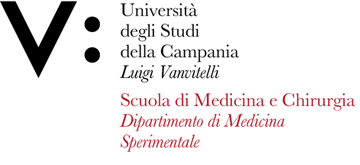Nicola ALESSIO
Insegnamento di BIOLOGIA MOLECOLARE
Corso di laurea in BIOTECNOLOGIE
SSD: BIO/11
CFU: 4,00
ORE PER UNITÀ DIDATTICA: 32,00
Periodo di Erogazione: Annualità Singola
Italiano
| Lingua di insegnamento | ITALIANO |
| Contenuti | La biologia molecolare è uno strumento essenziale per comprendere le basi molecolari della vita e per approfondire la conoscenza dei meccanismi biologici che regolano la crescita, lo sviluppo, la riproduzione e l'adattamento degli organismi viventi. |
| Testi di riferimento | G.Capranico et al. |
| Obiettivi formativi | Il corso si propone di fornire agli studenti una comprensione approfondita della struttura, della funzione e della regolazione delle macromolecole biologiche, come il DNA, l'RNA e le proteine, concentrandosi sulle vie biochimiche coinvolte. Saranno esaminati i meccanismi fondamentali della replicazione e della riparazione del DNA, nonché quelli responsabili del flusso dell'informazione genetica dal DNA alle proteine, ovvero la trascrizione e la traduzione, inclusi i meccanismi di regolazione cellulare correlati. In questo modo, gli studenti acquisiranno la capacità di comprendere e conoscere la struttura, la funzione e l'attività delle macromolecole biologiche, nonché le vie coinvolte nella regolazione e nel controllo del flusso dell'informazione biologica. |
| Metodologie didattiche | Il corso è organizzato in lezioni frontali con supporto informatico (Power Point). |
| Metodi di valutazione | La valutazione dell'apprendimento avverrà attraverso un colloquio orale durante il quale verranno poste domande riguardanti gli aspetti fondamentali della biologia molecolare. Le domande saranno specifiche e mirate a valutare le conoscenze di base sull'argomento. Lo studente dovrà dimostrare di comprendere gli aspetti chiave della struttura, della funzione e della regolazione delle macromolecole biologiche, come il DNA, l'RNA e le proteine. Saranno valutate anche le capacità dello studente di discutere tali argomenti e di stabilire connessioni significative. La valutazione sarà espressa in trentesimi, con un punteggio minimo di 18 e un punteggio massimo di 30/30 con possibilità di lode. |
| Programma del corso | STRUTTURA DEL DNA |
English
| Teaching language | Italian |
| Contents | Molecular biology is an essential tool for understanding the molecular foundations of life and delving deeper into our knowledge of the biological mechanisms that govern the growth, development, reproduction, and adaptation of living organisms. This field of research primarily focuses on the study of the structure, function, and regulation of molecular components within cells, such as nucleotides, nucleic acids (DNA and RNA), proteins, and cell membranes. |
| Textbook and course materials | G.Capranico et al. |
| Course objectives | The course aims to provide students with a comprehensive understanding of the structure, function, and regulation of biological macromolecules, such as DNA, RNA, and proteins, with a focus on the involved biochemical pathways. Fundamental mechanisms of DNA replication and repair, as well as those responsible for the flow of genetic information from DNA to proteins, namely transcription and translation, including related cellular regulation mechanisms, will be examined. In this way, students will acquire the ability to comprehend and comprehend the structure, function, and activity of biological macromolecules, as well as the pathways involved in the regulation and control of biological information flow. |
| Teaching methods | The course is structured with traditional lectures supported by computer presentations (PowerPoint). |
| Evaluation methods | The assessment of learning will take place through an oral examination during which questions regarding the fundamental aspects of molecular biology will be asked. The questions will be specific and aimed at evaluating the student's basic knowledge of the subject. The student will be required to demonstrate an understanding of key aspects of the structure, function, and regulation of biological macromolecules, such as DNA, RNA, and proteins. The student's ability to discuss these topics and establish meaningful connections will also be evaluated. The assessment will be graded on a scale from 18 to 30, with the possibility of receiving the highest grade of 30/30 cum laude. |
| Course Syllabus | DNA STRUCTURE |








